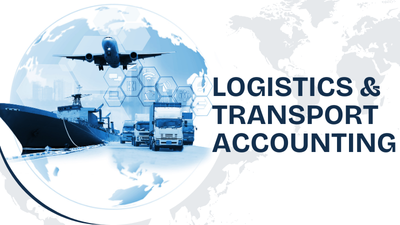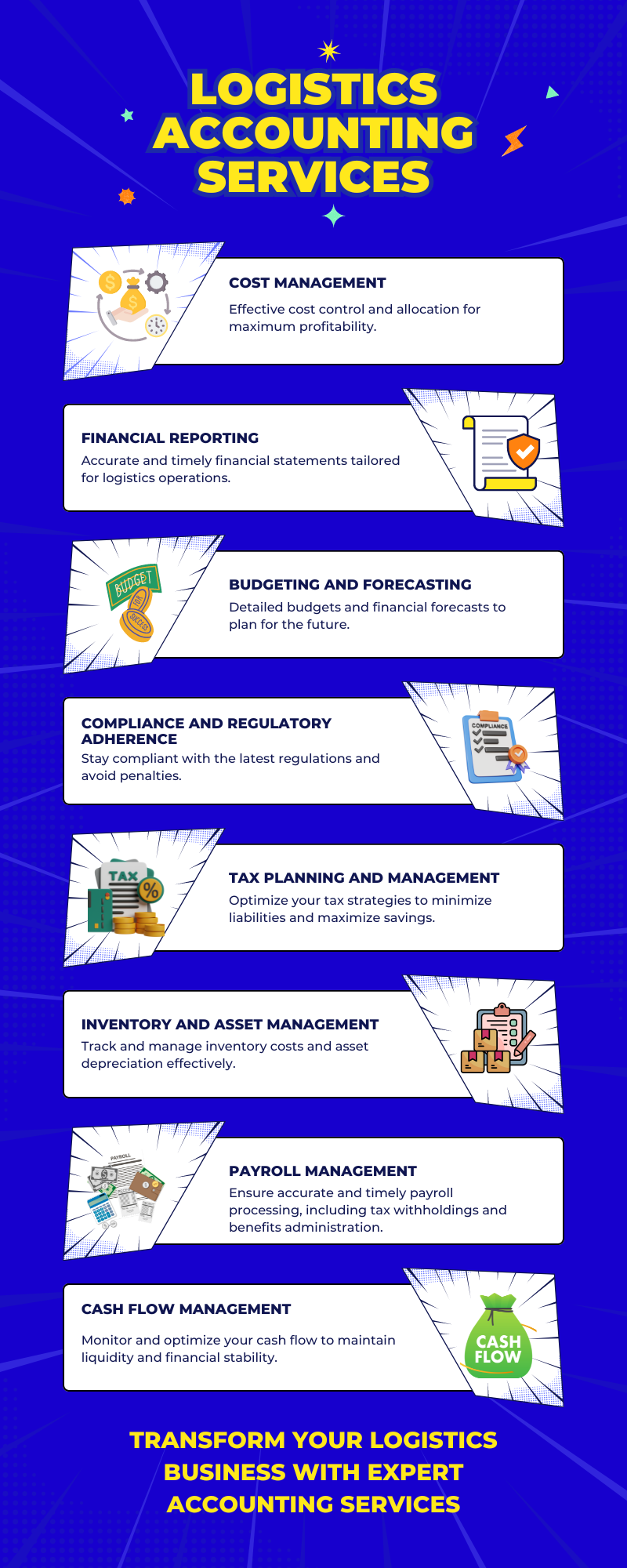
Understanding the Role of Cost Management in Logistics Accounting
- July 16, 2024
- OHI

Logistics accounting is a complex field that involves tracking and managing the financial aspects of logistics and supply chain operations. Effective cost management is a critical component of logistics accounting services, as it directly impacts the profitability and efficiency of logistics companies. This blog will delve into the role of cost management in logistics accounting services, exploring its importance, key components, and best practices.
Cost management is essential in logistics accounting services for several reasons:

Cost management in logistics accounting involves several key components:
1. Cost Identification and Classification
The first step in cost management is identifying and classifying costs. In logistics, costs can be broadly categorized into direct and indirect costs:
Accurate identification and classification of costs are essential for effective cost management, as they provide the foundation for cost analysis and control.
2. Cost Allocation
Cost allocation involves assigning costs to specific activities, projects, or cost centers. In logistics, cost allocation is crucial for determining the true cost of different operations and services. Common cost allocation methods include:
Effective cost allocation ensures that costs are accurately assigned, enabling better cost control and decision-making.
3. Cost Control
Cost control involves monitoring and managing costs to ensure they remain within budgeted levels. Key cost control strategies in logistics include:
Effective cost control helps logistics companies maintain profitability and operational efficiency.
4. Cost Analysis and Reporting
Cost analysis and reporting involve analyzing cost data to gain insights into cost drivers, trends, and opportunities for improvement. Key cost analysis techniques in logistics include:
Effective cost analysis and reporting provide the data needed for informed decision-making and continuous improvement.
Implementing best practices for cost management can help logistics companies achieve better financial performance and operational efficiency. Key best practices include:
1. Implementing Robust Accounting Systems
Investing in robust accounting systems and software is essential for effective cost management. These systems provide tools for tracking and analyzing costs, generating detailed reports, and automating routine accounting tasks. By using advanced accounting systems, logistics companies can ensure accurate and timely cost data.
2. Developing Detailed Budgets and Forecasts
Developing detailed budgets and forecasts is crucial for cost control and planning. Logistics companies should create budgets for different activities and projects, and regularly update forecasts based on actual performance and changing conditions. Detailed budgets and forecasts provide a roadmap for managing costs and achieving financial goals.
3. Conducting Regular Cost Audits
Regular cost audits help ensure that cost management practices are effective and that costs are accurately recorded and allocated. Logistics accounting firm should conduct internal audits to review cost data, identify discrepancies, and assess the effectiveness of cost control measures. External audits can also provide an independent assessment of cost management practices.
4. Leveraging Technology and Data Analytics
Leveraging technology and data analytics can significantly enhance cost management. Logistics companies can use data analytics tools to analyze cost data, identify cost drivers, and gain insights into cost trends. Technology solutions, such as route optimization software and fuel management systems, can also help reduce costs and improve efficiency.
5. Training and Development
Investing in training and development for transportation accounting and finance staff is essential for effective cost management. Logistics companies should provide ongoing training on cost management practices, accounting standards, and technology solutions. Well-trained staff are better equipped to manage costs and contribute to the company’s financial success.
6. Fostering a Cost-Conscious Culture
Fostering a cost-conscious culture within the organization is crucial for effective cost management. Logistics companies should encourage employees at all levels to be mindful of costs and to seek opportunities for cost savings. This can be achieved through regular communication, performance incentives, and involving employees in cost reduction initiatives.
Cost management plays a critical role in logistics accounting services, impacting profitability, operational efficiency, and strategic decision-making. By effectively identifying, allocating, controlling, and analyzing costs, logistics companies can achieve better financial performance and maintain a competitive edge in the industry. Implementing best practices, leveraging technology, and fostering a cost-conscious culture are essential for successful cost management in logistics. As the logistics industry continues to evolve, effective cost management will remain a key driver of success for logistics companies.
Contact us for a customized NO OBLIGATION proposal for outsourcing your accounting activities.







